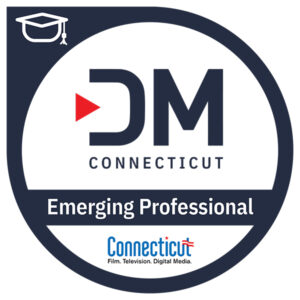“[It’s not] ‘oh no I have to include a woman’ it’s maybe she’ll talk about something that nobody ever thought of before.”
Episode 5 of Select+CT with Heather Elliot-Famularo, University of Connecticut / Karyl Evans, CPTV
We’ve either participated in or at the least heard about the rise of feminism at some point and those in the industry can probably relate to the challenges of women in film.
Recently, women in certain states have had their rights taken away, which has rightfully flooded socials of those in and out of the United States. Tiktok was how I heard about it (I write that un-proudly), for example, but, the media itself has aided in the movement for women’s rights long before platforms such as Facebook and Twitter. Now it seems that news outlets and journalists walked so that Elon Musk could run away with Twitter.
See also: Activism through Social Media
Two years back in 2020, CT-based podcast: Select+CT covered what it is like to be a woman in the media now and then. At the time of this recording, there was not a looming threat of abortion rights being stripped away. The podcast was however able to land guests Professor Heather Elliot-Famularo, University of Connecticut, and Karyl Evans, CPTV who spoke on women’s issues prior to the current ones; that being women in film. Particularly how film productions were actually more inclusive to women just a couple decades ago.
This was due to those women being paid less to do more. This is not exactly the reason one would want to be included, I imagine.
Fast forward to this decade, and you’ll see that when the term “Women in film” is mentioned, “It’s not ‘oh no I have to include a woman’ it’s maybe she’ll talk about something that nobody ever thought of before.” said Heather. Both Heather and Karyl did work in documentaries. Heather won film awards for her coverage on the Holocaust, and Carol won 6 Emmys for documenting African American history.
See also: University to Career
Karyl: “This is my art form, because you’re talking to real people”. Her take on success in the film industry is to simply keep working on projects and eventually you will ‘level up’. Karyl herself started as an intern and hung around until she was hired somewhere else to work on a production. Through this experience, she found that there were more women involved in the production than men. This was not for the good-graces of these women, but because back in the day women would be considered “safe” with less money. That is why more women were able to get into the documentary film world, because it was less money being taken from the production (even if they had real talent).
Featured Program
If you have read this far, Southern CT State University has an entire women’s and gender studies program that might be of interest (read more about this program here).
DMCT Micro Credentials

If you are unsure of how your skills connect to Connecticut’s growing Digital Media industry, I encourage you to enroll in DMCT’s first micro-credential course, The Emerging Practitioner. I am a graduate of the program and learned a bunch of things to assist my transition from University to Career in CT and beyond!